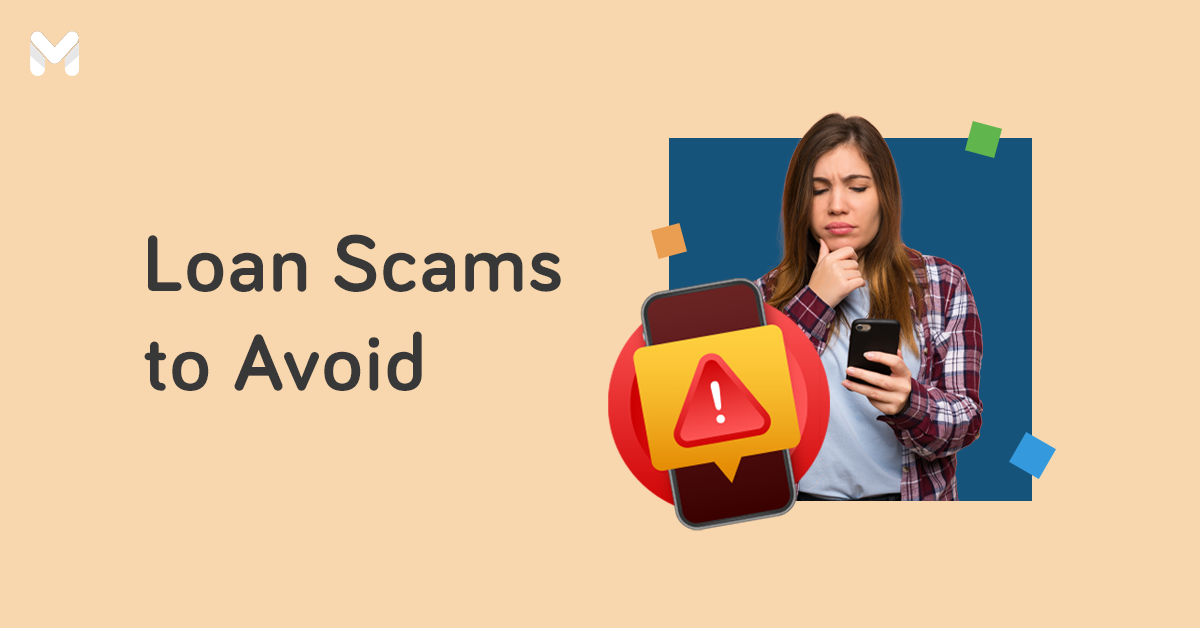Death can be a touchy subject for many. But there are benefits to discussing it openly, including preparing oneself for its inevitable consequences—be they emotional, mental, or financial.
No matter how much or how little you’ve gained in your lifetime, you can bring nothing with you to the grave and the afterlife. So where will your assets go? And what will happen to your liabilities?
You leave possessions behind to your beneficiaries. But what about your outstanding financial obligations? Can debt be inherited, too?
Read on to learn exactly what happens to a loan if the borrower dies in the Philippines.
What Happens to Unpaid Debt When the Borrower Dies?
-1.png?width=600&height=400&name=Pics%20for%20blog%20-%20600x400%20(73)-1.png)
In a way, even in death, you will still be responsible for paying off your debt, as your financial obligations will be settled through your estate. Your estate pertains to all liquid and non-liquid assets that you own (e.g., cash, investments, properties)—the entirety of which is assessed by legal entities in the case of bankruptcy or death.[1]
Depending on the value of your estate, any debt you have—be it a personal loan, mortgage, or any other outstanding financial obligation—can potentially weigh down your beneficiaries if you don’t put safeguards in place. As the Philippine law on the unpaid debts of deceased borrowers (i.e., R.A. No. 386 or the Civil Code of the Philippines[2]) states, debts don’t die with debtors, and financial obligations don’t just magically disappear when there are still valid assets that can potentially offset them.
Specifically, Article 774 of the Civil Code asserts: “Succession is a mode of acquisition by virtue of which the property, rights, and obligations, to the extent of the value of the inheritance of a person, are transmitted through his death to another or others either by his will or by operation of law.”
Moreover, Article 776 of the same Civil Code also states that “the inheritance includes all the property rights and obligations of a person which are not extinguished by his death.”
This means that, when you die, your assets—including your bank savings, investments, real estate properties, and other sizable possessions—can be frozen and made inaccessible to your family and relatives until your liabilities are properly settled.
A designated administrator, executor, or personal representative[3] will pay off your balances on your behalf using the assets from your estate before your beneficiaries get ahold of their share.
What happens to your debt when you die may also depend on the type of financial obligation you leave behind. Below are some examples of debt and how each of them is settled upon death.
📌 Credit Card Balance
.png?width=600&height=400&name=Pics%20for%20blog%20-%20600x400%20(74).png)
What happens if a credit cardholder dies in the Philippines? Will their credit card debt be forgiven entirely? Or will it be inherited by their successors?
As most credit cards are a type of unsecured debt, paying off any remaining credit card balance typically won’t be as big a priority in estate administration as settling secured debts and other more pressing financial obligations.
While this type of debt can be paid off using the remaining assets from the deceased cardholder’s estate, it can also be inherited by the joint account holder or credit card co-signer/co-borrower. Authorized users, on the other hand, are not obligated to keep up with payments when the primary cardholder dies.[4]
📌 Personal Loan
Like credit cards, personal loans are also typically unsecured, so while they can be offset using the debtor’s estate, there’s still a possibility that the remaining balance won’t be settled, as this type of loan is not too high on the priority list.
The chance of a personal loan getting settled increases when there’s a co-signer or co-borrower who can take over repayment.
📌 Mortgage
What happens to a housing loan if the borrower dies in the Philippines? Since mortgages are secured loans backed by collateral, their repayment typically gets prioritized when a borrower dies.
The successors of a deceased debtor (a.k.a. decedent in legal terms) have two main options in settling an unpaid mortgage: either use the decedent’s estate to cover the outstanding balance, or assume the housing loan, subject to approval.
There’s a third option, which is the most ideal among the three: pay off the debt with mortgage redemption insurance (MRI). Depending on the decedent’s insurance coverage, an MRI can fully cover any remaining housing loan balance.
MRI is now a mandatory part of the housing loan application process, but you can also opt to use your life insurance or other applicable insurance products to cover unpaid costs in case of death.
If you have no insurance to protect your property when you die, and your successors can’t keep up with payments, your house will be at risk of being foreclosed.
📌 Car Loan
.png?width=600&height=400&name=Pics%20for%20blog%20-%20600x400%20(75).png)
Car loans usually come with a death clause, which describes what will happen in the event of the borrower’s death. Similar to other loan types, a deceased debtor’s successors have the option to settle any unpaid car loan balance through the decedent’s estate. As a car loan is a secured type of loan, the lender can repossess the car if the estate can’t cover the balance and successors can’t pay off the debt.
However, if the decedent’s successors elect to assume the car loan, the contract will be transferred to them, as well as the obligation to make monthly payments until the car loan’s full balance is settled.
Is It Possible for the Debt of a Decedent to be Dismissed?
Yes, there are cases wherein debt, especially the unsecured kind, remains unpaid when a decedent’s estate lacks the assets to fully satisfy all remaining financial obligations. Creditors can’t obligate the successors to pay off the decedent’s debt out of their own pockets. Either the decedent’s estate settles the debt, or the debt doesn’t get settled at all. [5]
Typically, when debts go unpaid, it also means that the decedent’s beneficiaries get nothing as an inheritance as there is essentially no estate to distribute.
When Is Debt Inherited?
.png?width=600&height=400&name=Pics%20for%20blog%20-%20600x400%20(76).png)
Can debt be inherited in the Philippines? The short answer is yes, it’s possible. The long answer is that it depends on the context.
Generally speaking, the family members of the deceased have no responsibility to settle any unpaid loan, and debt collectors can’t suggest otherwise. As stated in the previous section, the decedent’s estate handles everything pertaining to the repayment of debt.
Still, that doesn’t mean that debt can’t be inherited. Debt collectors can come after the successors of a decedent in any of the following instances:
- They co-signed the loan of the deceased
- They are a joint account holder of the deceased’s credit card (even if they’re not an authorized user)
- They are the administrator or executor of the decedent’s estate, and the court has required them to pay off an unpaid loan using a property jointly owned by the decedent and their spouse or family member/s
If any of these situations are in play, then, unfortunately, successors will have to deal with the settlement of the decedent’s unpaid balances and loans.
If you’re a successor who has inherited your deceased loved one’s debts, consult with an accountant or lawyer to know how best to handle this sudden financial burden. You can also negotiate with banks or loan providers and ask if they can provide you with low-interest personal loans or any other loans that are easy to apply for to help with settling the debt.
How to Avoid Passing on Debt to Your Estate When You Die
Now that you know what happens to a loan if the borrower dies in the Philippines, the next step is to figure out how you can avoid adding more burden to your family in the event of your passing. You don’t want a scenario where your family ends up with no inheritance but with large debts to settle just because you didn’t manage your finances well while you were still alive.
Don’t rely on the assets you can potentially leave behind because none of them will matter if you have unpaid balances that are worth more than what you own. Follow these steps before it’s too late, and prepare yourself and your family for the unexpected:
- Keep a complete record of debts and liabilities. From credit card bills to auto loan payments, make sure everything is recorded in a notebook or a spreadsheet accessible by your spouse or your most trusted family member.
- Make full and timely payments to avoid unnecessary fees and charges. If you always pay your monthly dues on time and in full, you can avoid hefty interest charges and unnecessary fees that can blow up your loan balance. Don’t settle for paying just the minimum amount due.
- Be honest with your credit card co-owner. If you’re planning to make a huge purchase with your shared credit card, let your co-owner know first. If you already made the purchase without them knowing, fess up, apologize, and work together to solve your financial woes.
- Avoid getting multiple credit cards or loans if you can’t manage them responsibly. Don’t solve your financial problems by getting a new credit card or personal loan if the reason you're in debt in the first place is that you mishandled your existing credit card or loan. Perpetually using band-aid solutions will only make your financial sores worse.
- Get a life insurance policy. You’ll never know when death will come knocking on your door. Being the healthiest and the most money-savvy person in your family is not a surefire guarantee that you’ll outlive everyone. Consider getting life insurance so you can provide your loved ones additional financial support in the event of your passing.
- Get mortgage redemption insurance. If you have an existing mortgage and want to protect your family from financial burden in the case of your untimely death, consider getting a mortgage redemption insurance policy.
What Should Surviving Relatives Do When a Borrower Dies?
.png?width=600&height=400&name=Pics%20for%20blog%20-%20600x400%20(77).png)
Should borrowers die, their surviving family members will have no choice but to roll up their sleeves and figure out what to do next.
If you’re the successor of a decedent, follow these steps to manage your deceased loved one’s financial obligations.
Step 1: Organize All Financial Information
This is one of the first things you need to do to keep identity thieves from using the decedent’s information in their schemes.
Don’t let scammers sully your deceased loved one’s name after their death. If you are the executor of their estate, start organizing their financial accounts as soon as you can. You can also request a copy of the decedent’s credit report if you are an authorized family member.
This will help you map out their full financial capacity and credit history.
Step 2: Secure Important Documents
After your loved one’s passing, there are two important documents that you have to secure to efficiently manage their finances: their death certificate and their estate tax return.
Ask for multiple copies so you can send official copies to creditors, banks, life insurance providers, estate administrators, and the like.
You also have to file a Notice of Death within two months at the Bureau of Internal Revenue (BIR) Revenue District Office (RDO) where the deceased was registered prior to their passing.
Also, you have to file an estate tax return and settle the estate tax of the deceased within six months from the date of death. There could be surcharge ranging from 25% to 50% per year of non-compliance, but you can request an extension or opt for an installment arrangement.
Step 3: Identify the Estate and Secure Other Important Documents
After filing the most crucial documents, work on securing other documents you can use to track the decedent’s estate. The estate may include valuable assets like real estate properties, vehicles, stock investments, among others. Here are some examples of the documents you need to secure:
- Land titles
- Car registration
- Bank passbook/s
- Deeds of assignment
- Contracts to sell
- Declaration of trust
- Stock certificates
For real estate assets, you need to get a zonal valuation of the properties so that the BIR can compute the estate tax. For stock investments, coordinate with the decedent’s broker to learn about their asset value as well as how their assets can be liquidated.
Essentially, you as the surviving family member should have a general idea about the decedent’s assets so that every asset can be properly accounted for.
Step 4: Notify Creditors of the Death of the Debtor
After mapping out all the assets and liabilities of your deceased loved one, it’s time to inform people of their death. If you co-owned a shared credit card or co-signed a loan with the deceased, you have to inform the bank about their death to avoid incurring additional interest and finance charges in your shared account.
If your loved one prepared a will before their death, you have to inform the named estate executor or administrator to start the estate administration process. In case there’s no named executor, the court may appoint someone to act as the administrator of the decedent’s estate.
Aside from notifying the bank of the death, you should also check if the decedent set up automatic charges on any of their bank or credit accounts so you can close them immediately. Also, double-check if there are any unpaid phone, utility, insurance, or any other bills that need settling.
Step 5: Settle Outstanding Debts Through the Estate
After informing the right authorities about the death of your loved one, expect to hear from them as they submit claims against the decedent’s estate.
The decedent’s estate administrator will leaf through documents like loan agreements, contracts, or any other evidence of debt. From there, the total unpaid debt will be calculated.
The estate administrator will also review all claims and assess their validity. After identifying every valid claim, the administrator will then start the process of settling the debt by either selling the assets, liquidating all investments, or using any funds available from the decedent’s bank accounts. This process is referred to in the industry as probate.
Regarding the prioritization of payments, the first thing to be settled will be the funeral and burial expenses, followed by estate administration expenses, then taxes, then finally any unpaid debts. Secured loans like mortgages and auto loans will take higher priority over unsecured loans like credit cards or personal loan balances.
Step 6: Distribute Remaining Assets to Heirs and Beneficiaries
Once all debt has been settled, the remaining assets in the estate of a decedent will be distributed to their beneficiaries as stated in their will, or, in the absence of a will, by the law. If the deceased has no unpaid debt to settle, the beneficiaries will receive the full value of the estate or inheritance after the burial expenses and tax payments have been settled.
Final Thoughts
Knowing what happens to a loan if the borrower dies in the Philippines is important in learning how to manage your finances. As early as now, try to think about your legacy when you’re gone.
Will you leave behind assets that can help your family bounce back financially? Or will you saddle them with more financial woes?
Consider this your awakening. It’s time to start being more financially responsible while you still can.
Start paying off your debt and invest in products and solutions that can protect your assets. Don’t wait for fate to punish your loved ones for your unwise financial decisions. If you prepare now, you can make your exit from this world a celebration of your life.
Sources:
- [1] What Is an Estate, Estate Planning, and Drawing Up a Will (Investopedia, 2020)
- [2] Republic Act No. 386: Civil Code of the Philippines (Official Gazette of the Philippines)
- [3] Estate Administration in the Philippines (Respicio & Co., 2023)
- [4] What happens to credit card debt when you die? (Bankrate, 2024)
- [5] What Happens to Debt When You Die? Expert Explains 'Utang' vs. Legal Obligations (GMA News Online, 2021)
DISCLAIMER: The information provided on this website does not, and is not intended to, constitute legal or financial advice. All information, content, and materials available on this site are for general informational purposes only. Information on this website may not constitute the most up-to-date legal or other information and is subject to change without notice.
No user of this site should act or refrain from acting on the basis of information on this site without first seeking legal advice from their own attorney in the relevant jurisdiction. Only your individual attorney can provide assurances that the information contained herein – and your interpretation of it – is applicable or appropriate to your particular situation. Use of, and access to, this website or any of the links or resources contained within the site do not create an attorney-client relationship between the reader, user, or browser and website authors, contributors, contributing third parties, and their respective employers.
All liability with respect to actions taken or not taken based on the contents of this site are hereby expressly disclaimed. The content on this posting is provided “as is;” no representations are made that the content is error-free.







_1200x350.png?width=751&height=219&name=UB_PL_Generic_2_(Jan_2025)_1200x350.png)
-png-1.png?width=751&height=219&name=image%20(30)-png-1.png)
_1200x350.png?width=751&height=219&name=UNOBank_Loan_Generic_Ad_(Apr_2024)_1200x350.png)



